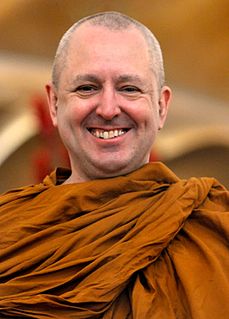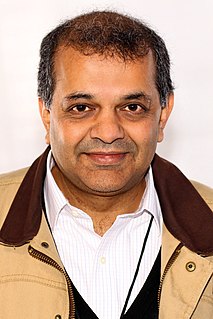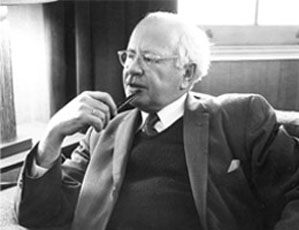Top 330 Democracies Have Quotes & Sayings - Page 6
Explore popular Democracies Have quotes.
Last updated on November 12, 2024.
A pure Democracy, by which I mean a Society consisting of a small number of citizens, who assemble and administer the Government in person, can admit of no cure for the mischiefs of faction. A common passion or interest will, in almost every case, be felt by a majority of the whole; a communication and concert result from the form of Government itself; and there is nothing to check the inducements to sacrifice the weaker party, or an obnoxious individual. Hence it is, that such Democracies have ever been spectacles of turbulence and contention; have ever been found incompatible with personal security, or the rights of property; and have in general been as short in their lives, as they have been violent in their deaths.
Hence it is that such democracies have ever been spectacles of turbulence and contention; have ever been found incompatible with personal security or the rights of property; and have in general been as short in their lives as they have been violent in their deaths. Theoretic politicians, who have patronized this species of government, have erroneously supposed that by reducing mankind to a perfect equality in their political rights, they would, at the same time, be perfectly equalized and assimilated in their possessions, their opinions, and their passions.
Perhaps I had better inform my Protestant readers that the famous Dogma of Papal Infallibility is by far the most modest pretension of the kind in existence. Compared with our infallible democracies, our infallible medical councils, our infallible astronomers, our infallible judges, and our infallible parliaments, the Pope is on his knees in the dust confessing his ignorance before the throne of God, asking only that as to certain historical matters on which he has clearly more sources of information open to him than anyone else his decision shall be taken as final.
And what has come to prevail in democracies is the very reverse of beneficial, in those, that is, which are regarded as the most democratically run. The reason for this lies in the failure properly to define liberty. For there are two marks by which democracy is thought to be defined: "sovereignty of the majority" and "liberty." "Just" is equated with what is equal, and the decision of the majority as to what is equal is regarded as sovereign; and liberty is seen in terms of doing what one wants.
Public charities, foodbanks and church pantries are doing more than ever before, but they can't keep up with the need. We can never end hunger only through the wonderful work of local charities. Like other Western democracies, we must end our national problem of hunger through national and political leadership. Charity is nice for some things, but not as a way to feed a nation. We don't protect our national security through charity, and we shouldn't protect our families and children that way either.
Democracy appears to be safer and less liable to revolution than oligarchy. For in oligarchies there is the double danger of the oligarchs falling out among themselves and also with the people; but in democracies there is only the danger of a quarrel with the oligarchs. No dissension worth mentioning arises among the people themselves. And we may further remark that a government which is composed of the middle class more nearly approximates to democracy than to oligarchy, and is the safest of the imperfect forms of government.
Our modern Western culture only recognises the first of these, freedom of desires. It then worships such a freedom by enshrining it at the forefront of national constituitions and bills of human rights. One can say that the underlying creed of most Western democracies is to protect their people's freedom to realise their desires, as far as this is possible. It is remarkable that in such countries people do not feel very free. The second kind of freedom, freedom from desires, is celebrated only in some religious communities. It celebrates contentment, peace that is free from desires.
Rulers like Egypt's Gamal Abdel Nasser started subsidizing bread as a way to buy loyalty, or at least obedience, and this system became so pervasive that the Tunisian scholar Larbi Sadiki described countries who used it as dimuqratiyyat al-khubz - "democracies of bread." But the problem with this system of offering bread in exchange for genuine democracy is that it can never last - sooner or later, the bread will run out, and people will start demanding bread and roses too.
The world has got more democracies than ever, and human rights are high on almost every country's agenda. Still, corruption and oppression are far too common threats to the democratic society. And we have seen a dramatic increase, the last 10-15 years, of ethnical conflicts and humanitarian crises with human rights violations as important elements., but also more of corruption. Human rights are praised more than ever - and violated as much as ever.
Equality, in a social sense, may be divided into that of condition, and that of rights. Equality of condition is incompatible with civilization, and is found only to exist in those communities that are but slightly removed from the savage state. In practice, it can only mean a common misery.
Equality of rights is a peculiar feature of democracies. These rights are properly divided into civil and political, though even these definitions are not to be taken as absolute, or as literally exact.
The Irish Free State was one of dozens of new European democracies to emerge from the cauldron of the 1914-1918 war. It was one of the very few that was still democratic in 1939. This book shows how the steely determination of one man, Kevin O'Higgins, made this possible. O'Higgins faced down mutinies in both the Gardai and the Army. He dissolved the Dáil Courts which were a parallel system that might easily have undermined the conventional courts. With WT Cosgrave, he put through a constitution which reconciled the local opponents of independence with the new State.
People who thought that she was busy going around trying to stir up difficulty where there was none or less than she imagined, were quite critical of her. She was, we must never forget, a public figure. And in democracies, public figures tend to attract criticism as well as praise. The most dangerous thing would be if anybody were regarded as above criticism. And Eleanor Roosevelt is, in recent years, getting there.
There is an old song which asserts 'the best things in life are free.' Not true! Utterly false! This was the tragic fallacy which brought on the decadence and collapse of the democracies of the twentieth century; those noble experiments failed because the people had been led to believe that they could simply vote for whatever they wanted...and get it without toil, without sweat, without tears. Nothing of value is free. Even the breath of life is purchased at birth only through gasping effort and pain.
I think a decent society should protect rights to private property within limits, but not concentrations of private power that infringe on the freedom and rights of others, including exploitation of labor, and that convert any democratic forms into what have been called sometimes "hierarchical democracies," like ours, in which some have vastly greater influence over public policy than others. Spelling all of this out is a complex matter that raises many issue and problems that are impossible to address here.
New information technologies-including email, the web, and computerized blast-faxes and phone calls-have fundamentally changed the landscape of political competition in modern democracies. They've done so in three ways: by dramatically boosting the access of individuals and special interests to politically potent information, by making it easier for such people to coordinate their activities and exert political power, and by greatly increasing the pace of events within our political systems.
While I was writing my book, I got a top police official in Bombay an invitation to study terrorism at the Rand Institute in Washington DC. This would have helped the city enormously, as he was the detective who cracked the '93 blasts case. But the commissioner declined to let his subordinate take up the offer from Rand, because of his fear that it was CIA-affiliated. That culture of suspicion needs to change; India needs to learn how other democracies fight terror.
There have been the most terrible, shocking events taking place in the United States of America within the last hour or so... I am afraid we can only imagine the terror and the carnage there and the many, many innocent people who will have lost their lives... It is perpetrated by fanatics who are utterly indifferent to the sanctity of human life and we, the democracies of this world, are going to have to come together to fight it together and eradicate this evil completely from our world.
Now we're in a situation where democracy has been taken into the workshop and fixed, remodeled to be market-friendly. So now the United States is fighting wars to instal democracies. First it was topple them, now it's instal them, right? And this whole rise of corporate-funded NGOs in the modern world, this notion of CSR, corporate social responsibility - it's all part of a New Managed Democracy. In that sense, it's all part of the same machine.
Our two nations both faced great challenges when they were founded, and our two nations have both relied on the same principles to help us succeed. We've built strong democracies to protect the freedoms given to us by an Almighty God. We've welcomed immigrants, who have helped us thrive. We've built prosperous economies by rewarding innovation and risk-taking and trade. And we've built an enduring alliance to confront terrorists and tyrants.
The great multinationals are unwilling to face the moral and economic contradictions of their own behavior - producing in low-wage dictatorships and selling to high-wage democracies. Indeed, the striking quality about global enterprises is how easily free-market capitalism puts aside its supposed values in order to do business. The conditions of human freedom do not matter to them so long as the market demand is robust. The absence of freedom, if anything, lends order and efficiency to their operations.
Our two nations have a lot in common, when you think about it. We were both founded by immigrants escaping religious persecution in other lands. We both have built vibrant democracies. Both our countries are founded on certain basic beliefs, that there is an Almighty God who watches over the affairs of men and values every life. These ties have made us natural allies, and these ties will never be broken.
Not to know one's true identity is to be a mad, disensouled thing — a golem. And, indeed, this image, sick-eningly Orwellian, applies to the mass of human beings now living in the high-tech industrial democracies. Their authenticity lies in their ability to obey and follow mass style changes that are conveyed through the media. Immersed in junk food, trash media, and cryp-tofascist politics, they are condemned to toxic lives of low awareness. Sedated by the prescripted daily television fix, they are a living dead, lost to all but the act of consuming.
One of the things that I realized when I left office was that in the 1990's citizens across the world applied more power than they had ever had, as compared with the government, because of more people living under democracies than dictatorships for the first time, the power of the internet, which the young Chinese used to basically change China's policy on the SARS epidemic, and shut it down, and because of the rise in non-governmental organizations like my foundation.
Political systems must love poverty-they produce so much of it. Poor people make easier targets for a demagogue. No Mao or even Jiang Zemin is likely to arise on the New York Stock Exchange floor. And politicians in democracies benefit from destitution, too. The US has had a broad range of poverty programs for 30 years. Those programs have failed. Millions of people are still poor. And those people vote for politicians who favor keeping the poverty programs in place. There's a conspiracy theory in there somewhere.
Chamberlain's stubborn, fanatical insistence on giving Hitler what he wanted, his trips to Berchtesgaden and Godesberg and finally the fateful journey to Munich rescued Hitler from his limb and strengthened his position in Europe, in Germany, in the Army, beyond anything that could have been imagined a few weeks before. It also added immeasurably to the power of the Third Reich vis-a-vis the Western democracies and the Soviet Union.
You must drop all your democracy. You must not believe in ''the people.'' One class is no better than another. It must be a case of Wisdom, or Truth. Let the working classes be working classes. That is the truth. There must be an aristocracy of people who have wisdom, and there must be a Ruler: a Kaiser: no Presidents and democracies.
What is the elephant in all our rooms? It is the global triumph of capitalism. Democracy is fiercely disputed. Freedom is under threat even in old-established democracies such as Britain. Western supremacy is on the skids. But everyone does capitalism. Americans and Europeans do it. Indians do it. Russian oligarchs and Saudi princes do it. Even Chinese communists do it... Karl Marx would be turning in his grave. Or perhaps not, since some of his writings eerily foreshadowed our era of globalised capitalism. His prescription failed but his description was prescient.
We can't continue assuming that politics is something which is decided elsewhere by distant leaders in a distant capital. Protest is insufficient too. If people who are willing to put time into demonstrations also prove willing to work on behalf of candidates in local elections - or to become candidates themselves - they will achieve far more. If all of this upheaval provokes more involvement, then we have a slim chance of ending up with more vibrant democracies eventually. The alternative, as you've hinted, is that democracy fails altogether.
There isn't much point arguing about the word "libertarian." It would make about as much sense to argue with an unreconstructed Stalinist about the word "democracy" - recall that they called what they'd constructed "peoples' democracies." The weird offshoot of ultra-right individualist anarchism that is called "libertarian" here happens to amount to advocacy of perhaps the worst kind of imaginable tyranny, namely unaccountable private tyranny. If they want to call that "libertarian," fine; after all, Stalin called his system "democratic." But why bother arguing about it?
In regard to propaganda the early advocates of universal literacy and a free press envisaged only two possibilities: the propaganda might be true, or the propaganda might be false. They did not foresee what in fact has happened, above all in our Western capitalist democracies - the development of a vast mass communications industry, concerned in the main neither with the true nor the false, but with the unreal, the more or less totally irrelevant. In a word, they failed to take into account man's almost infinite appetite for distractions.

























